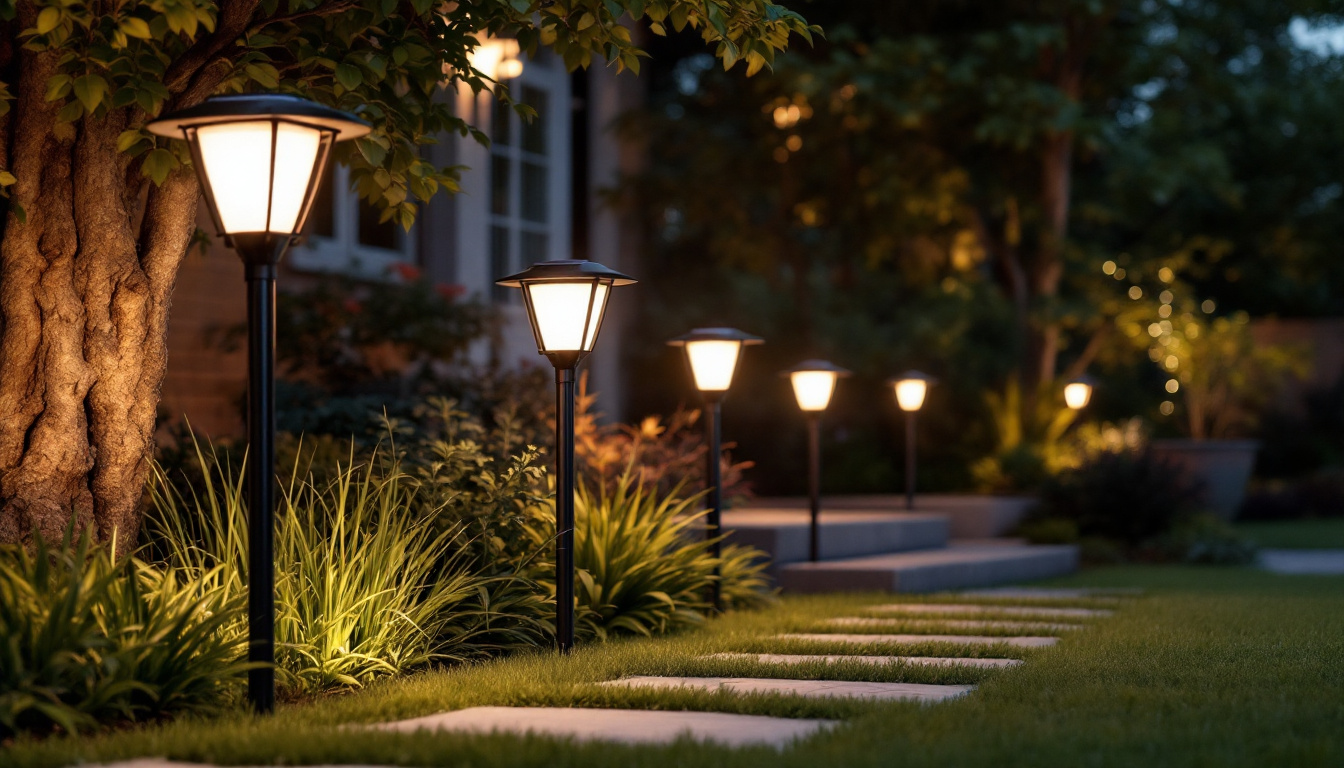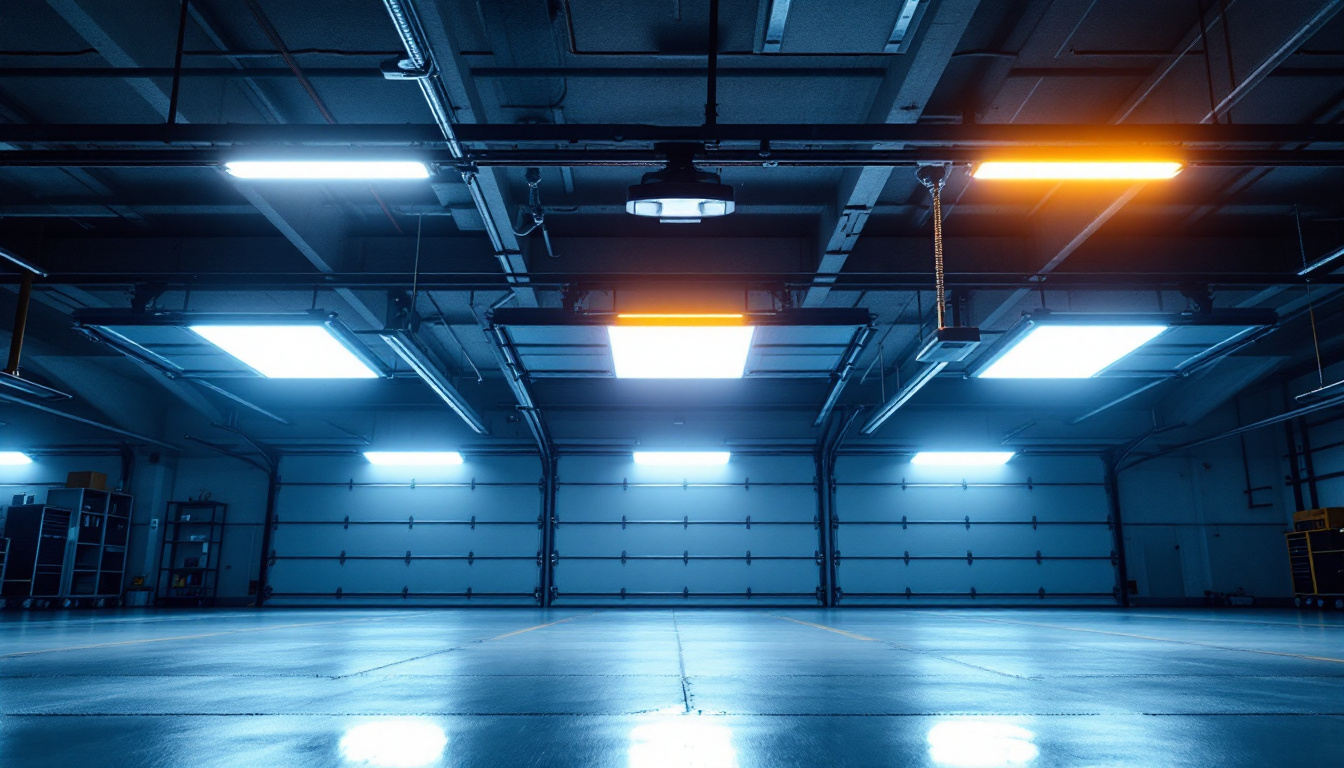
As the demand for sustainable and energy-efficient lighting solutions continues to rise, outdoor LED solar lamps have emerged as a popular choice for both residential and commercial applications. For lighting contractors, understanding the nuances of these products is essential to providing clients with the best solutions. This article delves into the key considerations, benefits, installation tips, and maintenance practices associated with LED solar lamps, ensuring that contractors are well-equipped to meet their clients’ needs.
LED solar lamps harness solar energy to provide illumination, making them an eco-friendly alternative to traditional lighting systems. These lamps are equipped with photovoltaic cells that convert sunlight into electricity, which is then stored in batteries for nighttime use. This technology not only reduces electricity costs but also minimizes the carbon footprint associated with outdoor lighting. As the world shifts towards sustainable energy solutions, the popularity of LED solar lamps continues to rise, offering a practical and environmentally responsible choice for both residential and commercial applications.
Moreover, the integration of smart technology in modern LED solar lamps has further enhanced their functionality. Many of these lamps now come equipped with motion sensors and timers, allowing them to conserve energy by only illuminating when movement is detected or during preset hours. This feature not only extends the lifespan of the batteries but also provides added security by ensuring that areas remain lit when needed, deterring potential intruders and enhancing safety for pedestrians.
To fully appreciate the functionality of LED solar lamps, it is crucial to understand their key components. The primary elements include:
In addition to these core components, many LED solar lamps feature adjustable brightness settings, allowing users to customize the intensity of light based on their specific needs. This adaptability not only enhances user experience but also contributes to energy savings. Furthermore, some models are designed with durable materials that can withstand harsh weather conditions, ensuring longevity and reliability in various environments. This robustness is particularly important for outdoor applications, where exposure to rain, snow, and extreme temperatures can impact performance.
There are various types of LED solar lamps available on the market, each designed for specific applications. Some common types include:
Additionally, there are specialized solar lamps designed for unique purposes, such as solar lanterns for camping, which provide portable lighting solutions for outdoor adventures. These lanterns often include features like USB charging ports, allowing users to charge their devices while enjoying nature. Another innovative type is the solar street light, which is increasingly being adopted by municipalities to illuminate public spaces sustainably. These street lights not only enhance visibility for pedestrians and drivers but also contribute to the overall reduction of urban energy consumption, showcasing the versatility and potential of LED solar technology in various settings.
Choosing LED solar lamps offers numerous advantages that can appeal to clients looking for effective outdoor lighting solutions. Understanding these benefits can help contractors make a compelling case for their use.
LED solar lamps operate on renewable energy, significantly reducing electricity costs. By utilizing solar power, these lamps eliminate the need for wiring and trenching, leading to lower installation costs and a reduced environmental impact. This energy efficiency can be a strong selling point for clients focused on sustainability. Additionally, the long lifespan of LED bulbs—often exceeding 25,000 hours—means that clients can enjoy years of reliable lighting without the frequent bulb replacements associated with traditional lighting solutions. This not only saves money but also reduces waste, aligning perfectly with eco-friendly initiatives.
One of the standout features of LED solar lamps is their minimal maintenance needs. With no wiring to check and durable components, these lamps are designed to withstand various weather conditions. Regular cleaning of the solar panel and occasional battery replacement are typically all that is required to keep these systems functioning optimally. Furthermore, many modern LED solar lamps come equipped with smart technology that allows for automatic adjustments based on ambient light levels, ensuring that they operate efficiently without the need for constant monitoring. This feature is particularly appealing to clients who prefer a “set it and forget it” approach to outdoor lighting.
LED solar lamps come in a variety of designs and styles, allowing contractors to offer clients a wide range of options to fit their specific needs and preferences. From sleek modern designs to traditional lantern styles, these lamps can enhance the aesthetic appeal of any outdoor space while providing functional lighting. Moreover, many models are equipped with features such as color-changing LEDs or motion sensors, which can add an extra layer of customization and security. This versatility not only caters to different architectural styles but also allows clients to create unique outdoor atmospheres, whether for a cozy garden retreat or a vibrant outdoor entertainment area. The ability to blend functionality with design makes LED solar lamps an attractive choice for both residential and commercial properties.
Proper installation is crucial for the performance and longevity of LED solar lamps. Contractors should keep several factors in mind to ensure successful installation.
Before installation, conducting a thorough site assessment is essential. This includes evaluating the amount of sunlight the area receives throughout the day. Ideally, solar lamps should be placed in locations that receive direct sunlight for a significant portion of the day to maximize energy collection.
When determining the placement of solar lamps, consider the following:
While LED solar lamps do not require traditional electrical wiring, understanding the electrical components is still important. Ensure that the batteries are of high quality and have the capacity to store enough energy for the intended usage. Additionally, familiarize yourself with any built-in control systems that might affect the lamp’s operation.
While LED solar lamps are low-maintenance, periodic checks can help ensure they continue to function effectively. Contractors should advise clients on best practices for maintenance and troubleshooting common issues.
Keeping the solar panels clean is vital for optimal performance. Dust, dirt, and debris can accumulate on the surface, blocking sunlight and reducing energy absorption. A simple cleaning with a soft cloth and mild detergent can help maintain efficiency.
Over time, batteries may lose their ability to hold a charge. It is important to inform clients about the signs of battery failure, such as dimming lights or inconsistent operation. Regularly checking the battery’s condition and replacing it when necessary can extend the lifespan of the solar lamp.
Some common issues that may arise with LED solar lamps include:
To ensure long-term satisfaction with LED solar lamps, contractors should focus on educating clients about their products. Providing comprehensive support can enhance the client experience and foster loyalty.
Contractors can create informative materials that outline the benefits, installation guidelines, and maintenance practices for LED solar lamps. This can include brochures, online resources, or even workshops that engage clients and answer their questions.
Offering post-installation support is crucial. Contractors should be available for follow-up consultations to address any concerns or issues that may arise after installation. This not only builds trust but also positions the contractor as a knowledgeable expert in the field.
Encouraging clients to provide feedback on their experience with LED solar lamps can offer valuable insights. This feedback can help contractors improve their services and better understand client needs, ultimately leading to enhanced offerings in the future.
LED solar lamps represent a significant advancement in outdoor lighting technology, offering energy efficiency, low maintenance, and aesthetic versatility. For lighting contractors, understanding the components, benefits, installation considerations, and maintenance practices associated with these lamps is essential for providing clients with effective and sustainable lighting solutions.
By staying informed and offering comprehensive support, contractors can position themselves as trusted experts in the field, ensuring client satisfaction and fostering long-term relationships. As the demand for eco-friendly lighting solutions continues to grow, embracing LED solar lamps will not only benefit clients but also contribute to a more sustainable future.
Ready to elevate your lighting projects with the efficiency and sustainability of LED solar lamps? At LumenWholesale, we provide lighting contractors like you with the highest quality, spec-grade lighting products at unbeatable wholesale prices. Say goodbye to local distributor markups and hello to our extensive selection that meets rigorous industry standards. With free shipping on bulk orders, you can trust that you’re getting premium lighting solutions at the best value, without any hidden fees. Let LumenWholesale be your partner in creating brilliant, eco-friendly outdoor spaces. Wholesale Lighting at the Best Value is just a click away.

Explore the critical role of laboratory lighting in enhancing precision and safety.

Unlock the secrets of electrical plugs with our in-depth guide tailored for lighting contractors.

Discover how LED lighting for garage ceilings is revolutionizing the lighting industry with energy efficiency, durability, and superior illumination.

Discover the advantages and drawbacks of post lanterns for lighting contractors in this insightful article.